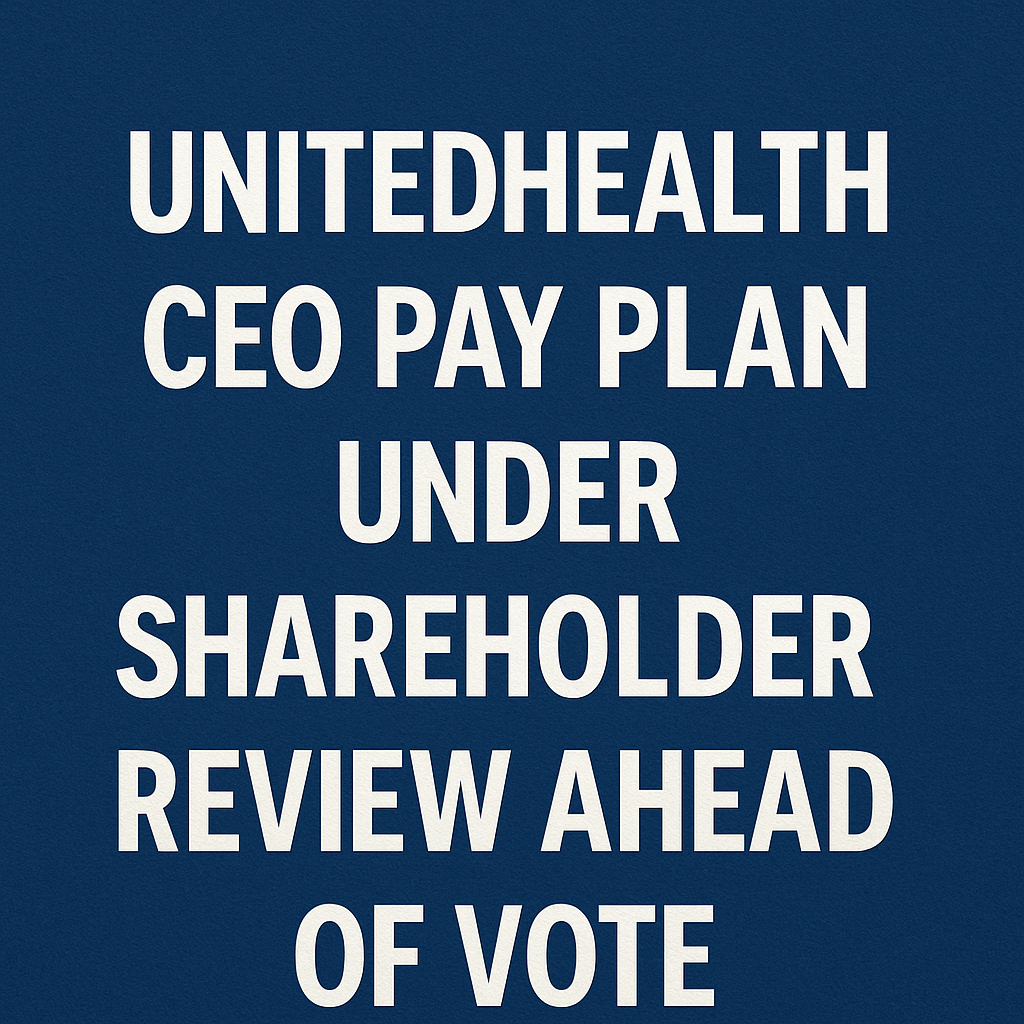UnitedHealth CEO Pay Plan Under Shareholder Review Ahead of Vote

Context and Current Situation
UnitedHealth Group (UHG), the largest health care company in the U.S. and No. 3 on the Fortune 500, has endured an unprecedented drop in market capitalization over the last quarter. Following a surprise 15% decline in Q1 revenue growth and persistent margin pressure in its managed care business, CEO Andrew Witty resigned for personal reasons. The board tapped former CEO Stephen Hemsley—who led the company from 2006 to 2017—to serve as interim CEO. On June 2, shareholders will vote on a highly unusual compensation package designed to retain Hemsley for up to three years.
Key Features of the Proposed Compensation Package
- Base Salary: $1 million per annum, below median for Fortune 50 CEOs (median base salary approx. $1.5 million, according to Equilar).
- One-Time Stock Option Grant: $60 million in options, vesting pro rata over a three-year period—25% each anniversary, subject solely to continuous service.
- Performance Metrics: Not explicitly tied to total shareholder return (TSR) or earnings per share (EPS) growth—an uncommon departure from pay-for-performance norms recommended by proxy advisors.
Governance Implications and ISS Analysis
Institutional Shareholder Services (ISS), the largest proxy advisor, has recommended a “No” vote, citing multiple governance red flags:
“Front-loaded, large multiyear awards limit the board’s ability to meaningfully adjust future pay opportunities. Without performance conditions, there is potential for windfall gains on a rebound from depressed share prices.”
ISS also highlights that under Section 14A of the Securities Exchange Act, shareholders gain only advisory rights over executive pay, allowing the board to override a negative vote.
UHG’s Rebuttal and Support from Glass Lewis
In proxy materials, UHG argues the package aligns with shareholder interest by linking value to stock price appreciation. They note that Glass Lewis, ISS’s main competitor, recommends a “For” vote, stating that Hemsley’s annualized compensation is “not excessive” relative to peers.
Comparative CEO Pay Benchmarks
Compensation consultants at Mercer and Aon note that typical Fortune 50 CEO packages include:
- Annual performance-vested equity awards tied to TSR vs. a peer index;
- Multi-year cash incentives based on adjusted operating margins and free cash flow;
- Clawback provisions and rigorous share-ownership guidelines.
By comparison, UHG’s plan lacks explicit performance hurdles and clawback triggers, drawing scrutiny from governance experts.
Potential Market Reactions and Risk Factors
Analysts at Morgan Stanley and Bank of America project that a disputed pay vote could:
- Increase short-interest if investors perceive board misalignment with shareholders.
- Pressure credit ratings if cash flow remains constrained while share price fluctuates.
- Elevate volatility in UHG options spreads as traders price in governance risks.
Regulatory and Reporting Considerations
Under SEC regulations, UHG must file detailed proxy disclosures (Form DEF 14A) describing the scheme’s metrics, potential dilution (currently <1.5% of outstanding shares), and risk assessments. Any subsequent amendments will trigger supplemental filings.
Outlook and Strategic Implications
Should shareholders reluctantly approve the plan, Hemsley will navigate significant operational headwinds—narrowing medical-loss ratios, Medicare Advantage reimbursement pressures, and potential antitrust scrutiny in vertical health care integration. Success would vindicate the board’s bet on a familiar leader; failure could intensify calls for governance reform and strategic realignment.
Read on YieldRadar.info